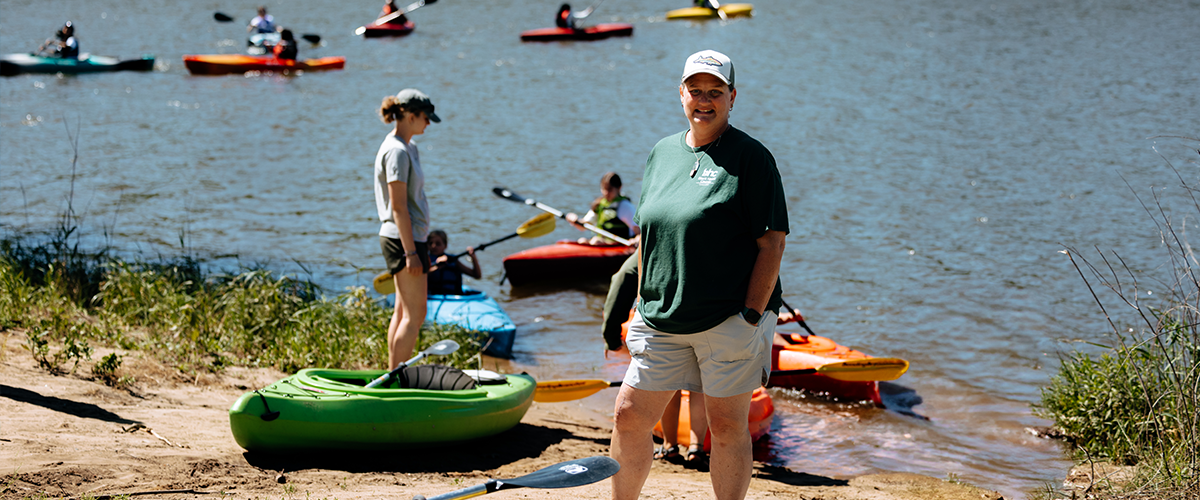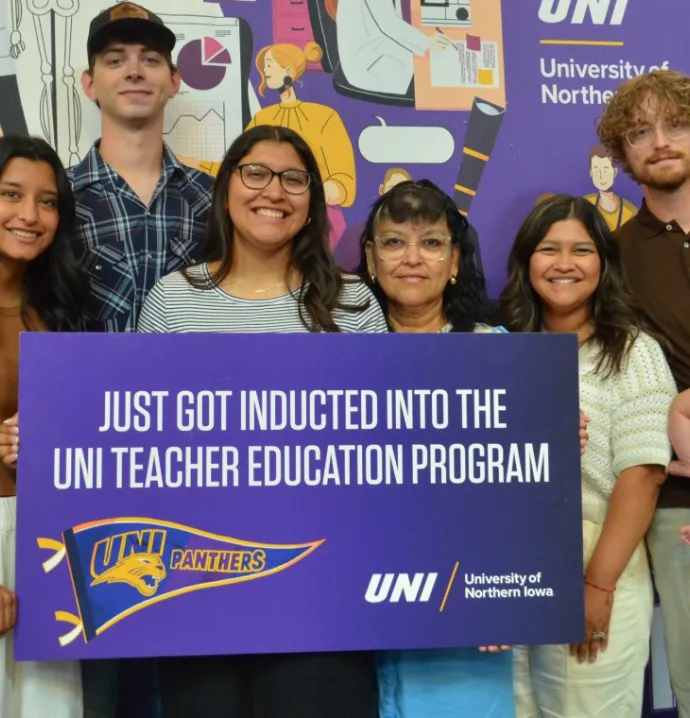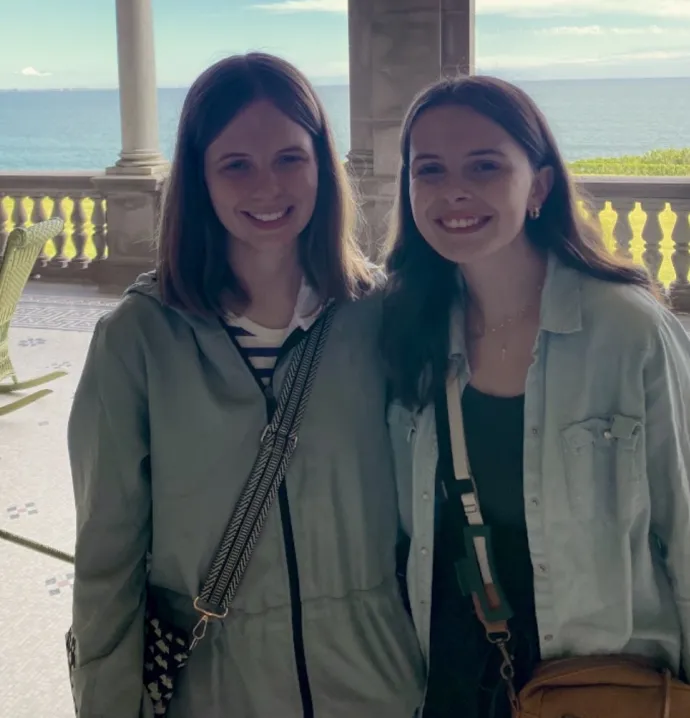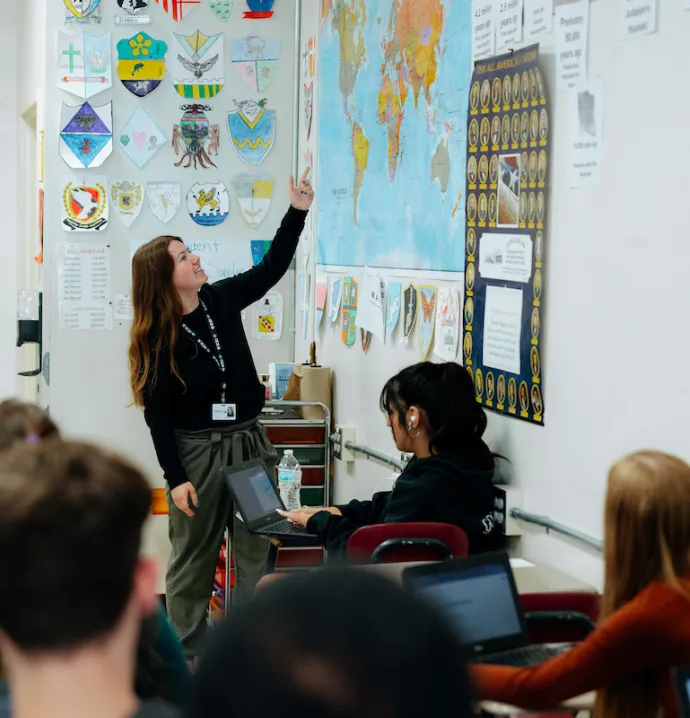Extending Education Outdoors
Extending Education Outdoors
Education doesn’t just happen within the confines of a classroom.
In fact, if you take a look around, education happens nearly everywhere, from museums to adventure tourism companies and environmental nonprofits to local recreation centers and beyond.
Likewise, UNI’s recreation, tourism and nonprofit leadership (RTNL) degree (previously known as the leisure, youth and human services major) emphasizes the aspect of taking education outdoors — an intrinsic part of the major.
“By integrating outdoor education into their programs, courses in the RTNL major enhance the learning experience and prepare students to be effective educators and leaders in environmental and adventure education,” says Kathy Scholl, Health, Recreation and Community Services department head and RTNL faculty member.
Another side of education
What exactly is outdoor education? Think of a child walking through the woods on a field trip to a local nature preserve. They encounter a fallen tree and climb up on it. They walk the length of the tree as if it’s a beam.
In doing so, they’re improving their balance and they’re encountering the environment. They may ask questions like, “What might have happened to make this tree fall?” or “What kinds of insects do I see crawling underneath the trunk?”
Essentially, outdoor education is a way to build skills and develop knowledge while exploring and discovering the outdoors.
Students working toward the RTNL degree, particularly those focusing on recreation, benefit from outdoor education for numerous reasons. First and foremost, it offers a dynamic learning environment, encouraging experiential learning and engaging multiple senses and learning styles. This makes the major more inclusive and effective for diverse learners.
Students also prepare for real-world challenges by simulating unpredictable outdoor scenarios, which requires adaptability and resilience.
One way they do so is through hands-on learning at places across campus, including the UNI Biological Preserves and Trails and the Tallgrass Prairie Center.
Scholl shares that the RTNL program engages students in service-learning projects whenever possible. For example, a group of students recently helped decommission a trail at Hartman Reserve Nature Center in Cedar Falls that wasn’t to be used by visitors.

Alumni perspectives
Amy Davison (‘95, BA, ‘17, EdD), manager of Hartman Reserve Nature Center, enjoys partnering with UNI students because they bring new ideas, creativity and energy.
“I love working with students to see them become passionate about a particular topic or program,” she says.
Watching students grow and develop leadership skills and confidence as they spend time learning from staff and participating in programs makes the partnerships meaningful. Community organizations are essential to providing real-world hands-on experiences that help students become well-rounded professionals.”
One such professional is Ryan Harkema, who received his master’s degree in leisure services in 2004. He currently serves as recreation superintendent for the City of Ankeny’s Parks and Recreation Department.
“When I think of taking education outdoors, I lump all that parks and recreation has to offer under that umbrella,” he says. “From over 45 different parks, to the various indoor and outdoor sports leagues and programs we offer, to the awesome number of contracted programs we are able to offer through partnerships and people who have expertise in a wide range of topics, we are able to combine all that recreation has to offer under one umbrella.”
Harkema still recalls the foundation UNI helped him lay in the profession.
“What the master’s program did for me was help me better understand the ‘why’ behind things, how to critically think and analyze situations and life in general,” Harkema shares.
Preparing for a career
Sydney Welte, a spring 2024 RTNL graduate, had the opportunity to work with Harkema as an intern last spring, through which she helped plan outdoor events and coordinate youth programs like the Father-Daughter Dance and Tumble Tots.
As a UNI student, Welte immersed herself deeply in outdoor education as a trip coordinator through the Outdoor Education Leadership Alliance.
“I learned how to plan, problem-solve, observe participant morale, and map the fundamentals of risk management,” Welte says.

“Being a trip coordinator was a great way for me to meet a community and gain experience leading groups of people.”
While she isn’t entirely sure where her career path will lead her, Welte feels her RTNL degree is versatile enough to give her a plethora of options.
According to Scholl, indeed it will. The job market for an RTNL grad is full of outdoor education careers, including adventure tourism guide, environmental educator, park ranger and geographic information systems specialist.
For Welte, being an RTNL student enabled her to be surrounded by people who care about the outdoors as much as she does.
“Through the program, I enjoyed the people the most,” Welte shares. “Everyone I met was hard working, kind, funny, and passionate about providing for the community in one way, shape, or form.”




